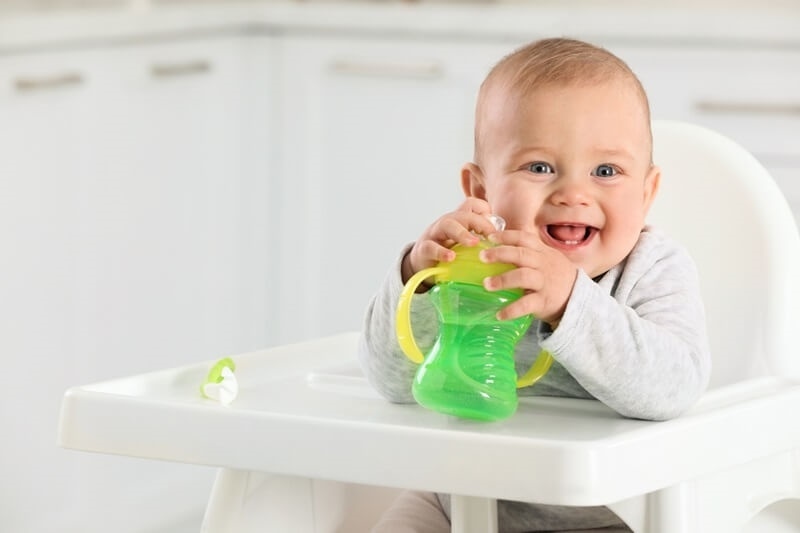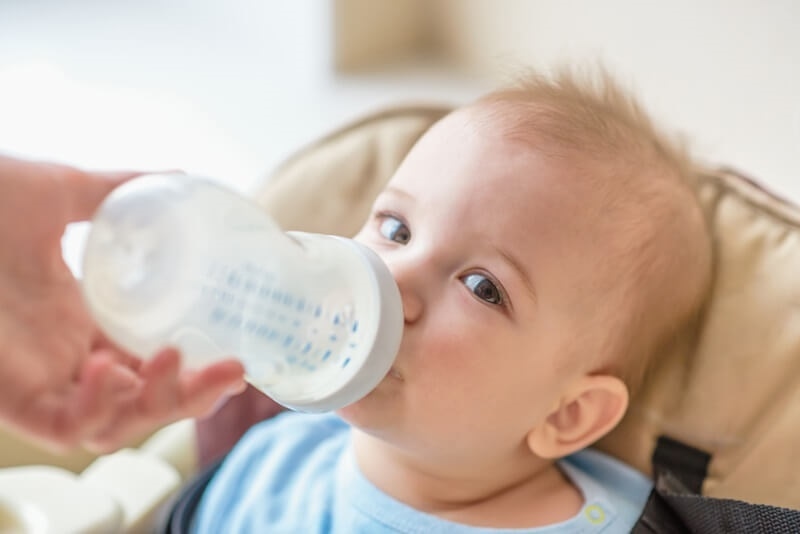
Being the father or the mother to a newborn baby, your greatest desire is to provide your baby everything the best. This would include giving your baby the best water to drink. Whereas in most adults there is no danger of consuming various types of water, the same cannot be said of babies. This usually brings a question among the parents: Can a baby consume distilled water? We will provide all the information required to know about distilled water use in either infants or toddlers, all in this blog. We shall discuss whether it is safe and how it can be used and compared with baby water.
During their early months of life, babies and toddlers need special hydration. Their kidneys are still maturing, meaning they are not able to process the water as their grown-up body does. This is why it is significant to use the suitable type of water.
Babies can have distilled water, but only under some conditions. Distilled water is water that has been evaporated as steam and then condensed back into water to clear nearly all minerals, chemicals, and impurities. Due to its purified nature, distilled water has been advised for the mixing of the baby formula.
Nevertheless, infants below 6 months of age should not be given plain distilled water unless recommended by your pediatrician. Your baby aged below 6 months participates only in breast milk or formula that has all the required fluids.
Yes, distilled water is safe to drink for babies, but with limits and context. It's ideal for preparing baby formula because it doesn’t contain harmful contaminants or excess minerals that might upset a baby’s delicate system.
But giving only distilled water directly to your baby without formula is not recommended in the early months. Babies could miss out on essential nutrients that they need for proper growth and development.
It’s important to know when it’s okay to let your baby drink distilled water directly. The timing depends on their age and diet.
Do not give plain water to infants under 6 months, including distilled water. Their kidneys are still maturing, and giving water at this stage can lead to water intoxication. If you're using distilled water for kids, it should only be for mixing formula, not for direct drinking.
After 6 months, small amounts of water can be introduced as babies begin eating solid foods. During this period, distilled water can be offered in small sips. But again, this should be limited and not replace breast milk or formula.
Toddlers can drink distilled water, but it's not the only option. At this age, a wider range of drinking water is usually safe, including filtered tap water or spring water.

Some parents wonder if babies can drink distilled water without formula, especially once solids are introduced.
Babies can start drinking plain water (including distilled) in small amounts after they turn 6 months old. It helps with digestion and prevents dehydration once solid foods are added. Still, their main source of hydration should be breast milk or formula up to at least 12 months.
Even after 6 months, giving too much distilled water—or any water—can fill up a baby’s stomach and reduce their appetite for nutrient-rich foods and milk. Always follow your pediatrician’s advice on how much water your baby needs.
Many parents get confused between baby water and distilled water. They might seem similar, but there are some key differences worth knowing.
As mentioned earlier, distilled water is pure water that has been vaporized and re-condensed, removing all impurities and minerals. It’s sterile and very clean, making it ideal for mixing baby formula.
Baby water is typically purified water or distilled water with added minerals like fluoride. It’s marketed specifically for infants and is labeled as “nursery water.” While safe for older babies, added fluoride may not always be necessary, especially if your baby is already getting fluoride from other sources.
It depends on your baby’s age and needs:
Giving babies untreated or unfiltered water can be risky. Babies' immune systems are still developing. If water contains bacteria, heavy metals, or nitrates, it can cause infections or poisoning.
Some bottled or tap waters contain high levels of sodium, fluoride, or other minerals. While adults can handle this, babies may experience kidney strain or electrolyte imbalance.
Using distilled water for baby formula is common and recommended. Here are simple steps to follow:
Once your baby becomes a toddler (after 12 months), you might ask: Should they keep drinking distilled water every day?
Yes, toddlers can drink distilled water, but it’s not the only option. At this stage, your child’s body is better equipped to handle filtered tap water or even spring water. If your local water is safe, there’s no harm in switching to other clean water types.
You might prefer using distilled water:
Water safety might seem like a small topic, but it’s a big deal for growing babies and toddlers. Here are a few extra tips to keep in mind:
Always consult your pediatrician before making decisions about your baby’s water intake, especially when it comes to introducing water.
If buying bottled water, make sure it’s:
Now the question is, can babies have distilled water? This is yes, but with age-conditioned caution. Pure water, which is distilled, can be used to mix the formula and used by bigger babies in small quantities. In the case of toddlers, it can be utilised as a choice of hydration, which is hygienic and not harmful. The trick is to know how old your child is, what nutritional requirements he has, and what sources of water are available. Always remember to consult your pediatrician, especially when you are not sure. Whatever route you take, you want the best for your baby, and the best way to do that is to make sure that they are safe, hydrated, and healthy.
This content was created by AI